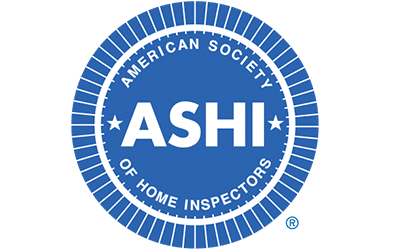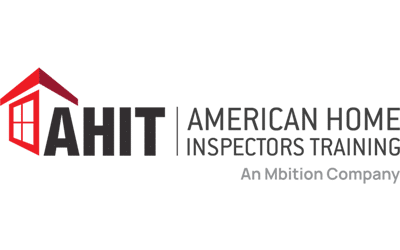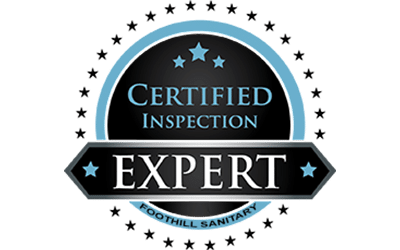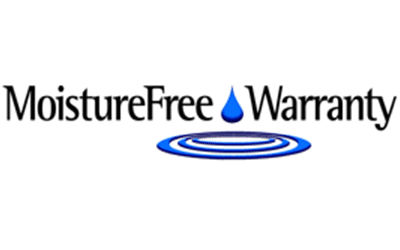Frequently Asked Questions
Since 1989, Residential Inspector of America has provided thorough, detailed home inspection services. We provide the knowledge and protection you need so you can confidently buy the home you want. Schedule an inspection online now or get an instant quote by calling us today.
Since there is no licensing in the state of Georgia for home inspectors, it’s important to choose a company who has the experience, certifications, insurance, and reputation to stand behind their inspection.
When shopping around for a home inspector, there are a few questions that are very important to ask in addition to the price. Be wary of inspectors who are much cheaper than others. You get what you pay for when it comes to home inspections!
Since buying a home is the largest investment you will make in your lifetime, you want a qualified, experienced inspector to guide you through the process – not a brand-new guy willing to offer cheap inspections to gain more business.
There is no required licensing for home inspectors in the state of Georgia. That means that anyone, even a person with little knowledge of homes, can call himself a home inspector. We have inspectors that are certified through the American Society of Home Inspectors (ASHI) which is the highest nationally recognized organization for home inspectors today. ASHI sets guidelines for inspecting, report writing, and ethical practices for home inspectors.
We also have inspectors that are ICC code certified. ICC is the International Code Council, a nonprofit organization that writes building codes in accordance with which homes should be built. The state of Georgia has adopted the 2012 ICC codes, in addition to annual state amendments, for use in all its counties. Having this certification means our inspectors can tell you if a home you are purchasing is built according to state mandated code regulations. In addition, any renovations should be done according to current code standards, so our inspector will look at those items as well.
It is important to make sure your home, or the home you plan to buy, meets code for safety reasons to avoid potential costly problems and for resale value as well.
All our inspectors are Certified Inspection Experts. Every general home inspection from a Certified Inspection Expert goes beyond the minimum standards most inspectors adhere to in a meaningful way. This means we check for major appliance recalls, guarantee our work with a real mechanical and structural warranty, and offer guarantees about the condition of items that can’t be inspected like underground water and sewer lines. In many ways, the inspection from a Certified Inspection Expert exceeds all others in the marketplace. Every home inspection from a Certified Inspection Expert is of incredible quality. To ensure this quality, the Certified Inspection Expert is the only certification that requires ongoing quality control from a third party.
We carry Errors and Omissions, General Liability, and Workers Comp insurance to protect all parties involved.
If you need to cancel your inspection, please call our office at least 24 hours in advance to avoid a $95 charge. Same day cancellations will be charged half of the inspection fee. If you are purchasing a new construction or foreclosure home, you or your realtor should make sure the utilities are turned on at least 24 hours before your inspection is scheduled.
This is our contract that must be signed prior to the home inspection. It will outline what the inspection includes and does not include. It will also have important notes about the standard protocols we follow. It is important that you read and understand the agreement prior to your inspection.
During the inspection, our inspector will look at all aspects of the house, including the exterior, interior, plumbing, electrical, and HVAC. The average inspection takes approximately 2.5 - 3.5 hours.
For a pre-drywall construction phase inspection, the inspector will look at the structural components, as well as the plumbing, electrical, and HVAC rough-ins. This inspection will take approximately an hour and a half.
When scheduling your final inspection, be sure all the utilities are turned on. Cosmetic items and inaccessible areas are not part of the inspection process.
If at all possible, you should attend the inspection. It is best if the inspector can point out problem areas to you and ease any additional concerns you may have. If you cannot attend the entire inspection, you can come to the inspection about an hour and a half after the scheduled time.
When you arrive, the inspector can go through the areas of concern with you. If you cannot attend, payment and agreement must be received before you will be able to access your report.
Your inspector will email a link for the digital report to you within 24 hours of your inspection. You can then download it as a PDF file if you wish or view it as an HTML. The report includes digital photos and details of what we discovered during the home inspection. Each inspection report is considered confidential and other than your realtor, no one can view it without your permission. You are not required to give the report to the homeowner or the listing agent.
When you schedule your appointment, we will send an email link that allows you to pay by credit card or ACH. You may also pay in cash at the time of the appointment. If, however, you are not present during the inspection, payment and agreement must be received before you can access the report. We do not accept checks.
The Environmental Protection Agency (EPA) recommends radon gas testing on all homes. Radon gas is the number one cause of lung cancer among nonsmokers. It can seep through many places in a house, including cracks in a concrete slab, block foundations, slab footing joints, exposed soil, sump pump openings, weeping tile, mortar joints, loose fitting pipes, granite, and water. Once radon is inside a home it has no way to disperse into the outside air. The gas becomes trapped and may reach dangerous levels.
Radon gas is especially high among areas where granite is present. Radon gas is colorless, odorless, and tasteless and can only be detected through a radon gas test. Many times, there is a simple solution to a radon gas problem; however, you must know about the problem in order to fix it! RIA uses a continuous monitor which is left at the home for 48 hours to test for radon gas. Results are sent by email once the machine is retrieved.
Mold is commonly found in homes and thrives where spores can find sources of water, including moisture from flooding, plumbing leaks, roof leaks, showers and bathtubs, refrigerator water pans, and more. Mold can be dangerous to one’s health as some molds are toxic and mold spores travel through the air, making it possible to inhale mold spores. Most molds only cause allergic symptoms in people; however, some molds have been linked to more serious conditions. Those with asthma or allergies and people with weakened immune systems (such as children, elderly, pregnant women, or cancer patients) will have more difficulty coping with mold.
It is impossible for anyone to distinguish between toxic and nontoxic molds from a visual inspection. Mold samples must be taken and sent to a mold laboratory for analysis. If the mold in your home is toxic, it must be cleaned by an industrial hygienist and the source of the mold growth must be corrected. If the source is not corrected, the mold will likely return.
RIA performs indoor air quality testing to determine if mold is toxic or poses an unusual growth condition. Samples are sent to a laboratory for analysis, which generally takes 3 - 5 business days. The analysis is emailed as a PDF file, and we provide assistance to interpret the results.
Yes! Our new home inspections typically uncover items such as code violations, damaged roof shingles, nail holes in the roof shingles, missing flashings, deck problems, electrical problems, HVAC problems, and plumbing problems. Many people feel that the county inspections and/or the walk through with the builder are adequate substitutions for completing a private inspection.
County inspectors may not spend the necessary time in your home to find all the issues. RIA will spend 2 - 3 hours inspecting the home on YOUR behalf! Catching problems early on can save thousands of dollars in repairs later. If there are code violations, the builder may be required to fix the items for you. Any code violations or problems that exist in your home may pose a problem when you decide to sell if they are not found and corrected sooner. Cosmetic items are not part of the final inspection.
In addition, a new home inspection includes five free warranties and RecallChek on appliances for life! These warranties work in conjunction with your 12-month warranty inspection.
The sale of a new construction home typically includes a one-year warranty in which the builder will correct any problems encountered within the first year of ownership. It is wise to have an inspection conducted shortly before the one-year warranty expires so you will know what the builder needs to correct. RIA can inspect the home whether or not we conducted an inspection prior to purchase.
The stucco inspection is a visual examination of the exterior stucco and typically includes a moisture test on the stucco. The moisture test determines the level of moisture that the stucco wall is retaining beneath the surface using moisture scanners and probe meters.
The inspection also includes a visual examination of the condition of the stucco for proper flashing, bottom edge termination, cracking, and other problems.
Our stucco inspectors do use probe meters on synthetic stucco inspections because it is the only way to get an accurate moisture reading of your stucco. The probe testing is invasive but only produces holes about the size of a pin head and the holes are re-caulked after the inspection is completed. We take every precaution to make sure we do not cause damage to the exterior of the home.
Synthetic stucco (EIFS) is a “barrier system” and is a polymer based system installed over fiberglass mesh. It is frequently installed incorrectly, which allows water to penetrate the surface. Moisture becomes trapped inside with no way to escape. This can lead to mold, wood rot, and other problems.
Hardcoat stucco is made from portland based cement applied over a wire mesh. It can also have installation errors and can experience similar moisture issues to synthetic stucco.
You should check with your builder at the beginning of the building process to find out when the framing phase will be completed. Since there are usually only a few days between framing and installation of the drywall, be sure to let your builder know you want to do a pre-drywall inspection.
Pre-drywall inspections can only be done right before the drywall is installed and only after the mechanical rough-ins (electrical, plumbing, and HVAC) are completed.
For a pre-drywall inspection, the inspector will look at the structural components, as well as the plumbing, electrical, and HVAC rough-ins. The inspector will make sure everything has been built according to the current ICC code.
RIA will come out before your final walk-through and do a complete home inspection which is a structural and mechanical analysis of the home. If you completed a framing inspection, the inspector will refer to the framing report to ensure repairs were made correctly. We will then complete a full inspection on the completed home.
Schedule Your Inspection Today
Get an instant quote by calling our office or schedule online now.




